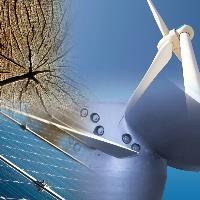(BRUSSELS) – Emissions of greenhouse gases from all operators covered by the EU Emissions Trading System (EU ETS) in 2019 fell by 8.7% compared to 2018 levels, the European Commission reported on Tuesday.
This was in large part a result of 9% decrease of emissions from stationary installations and a 1% increase of emissions from aviation.
The reduction of greenhouse gases emissions in 2019 took place in the context of a growing EU economy (EU 28 GDP growth of 1.5% in 2019). The biggest reduction was achieved in the power sector with a decrease of 15% reflecting decarbonisation from coal being replaced by electricity from renewables and gas-fired power production. Emissions from industry decreased by 2%. Emission reductions have been observed in most industrial sectors, including production of iron and steel, cement, chemicals and refineries.
Installations and aircraft operators level of compliance with the EU ETS is very high: more than 99% of emissions covered by allowances from the total stationary installations reported emissions. Non-compliant installations are typically small.
Under the EU ETS, all operators were required to report their verified emissions for 2019 by 31 March 2020 and to surrender enough allowances to cover these emissions by 30 April 2020.
All data covering a period before the covid-19 crisis – is now publicly available on the European Union Transaction Log website.
“The EU ETS is an important tool for capping emissions and stimulating further reductions, by putting a price on carbon,” said EC vice-president Frans Timmermans, who commended the efforts made to meet the compliance deadline “despite the difficult circumstances”.
“As we look to further revise the EU ETS in the coming years, it can become an even more powerful tool to meet our European Green Deal objectives and our commitments under the Paris Agreement, while modernising our economy and the energy that drives it,” he added.
The ETS is a cornerstone of the EU’s policy to combat climate change, covering industries which generate around 45% of the EU’s greenhouse gas emissions. It limits emissions from more than 11,000 power stations, industrial plants and airlines.
European Union Transaction Log public website
Union Registry and Member State registries


